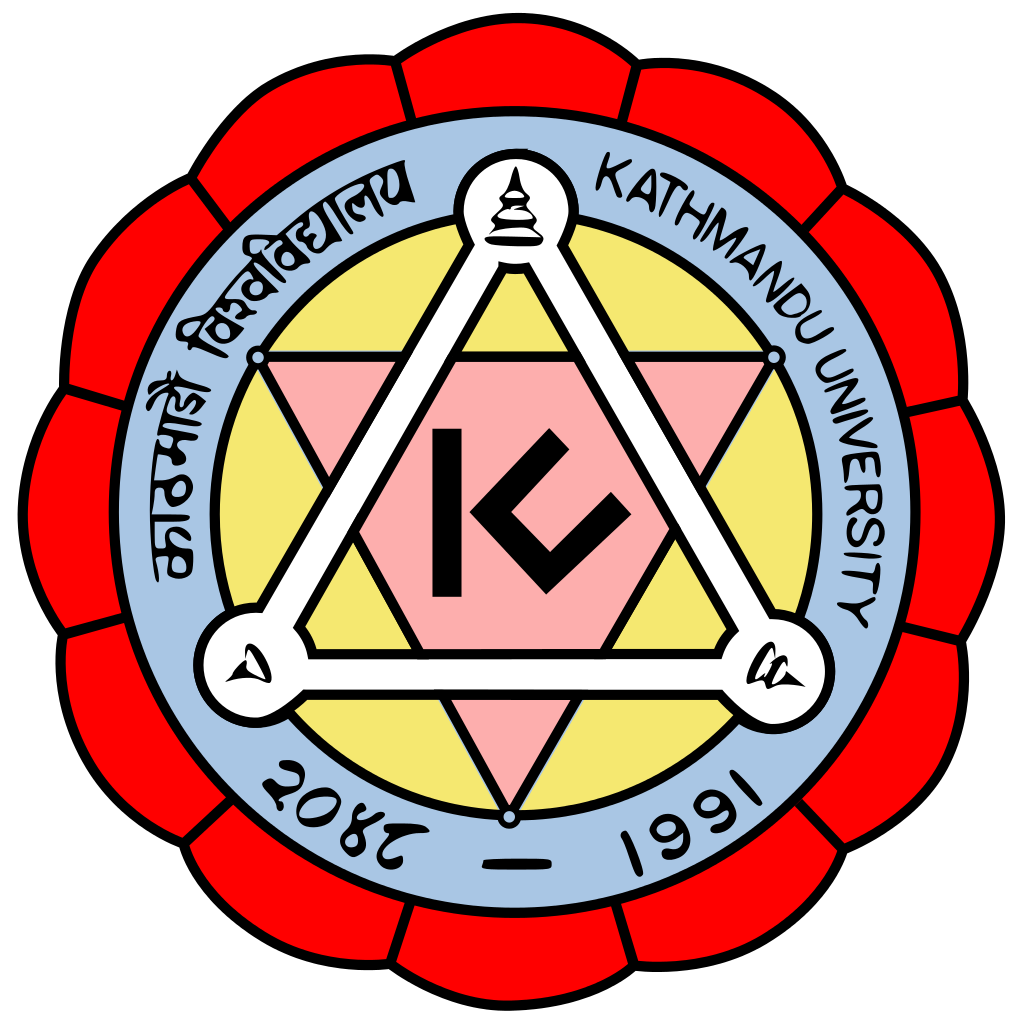KU School of Science
KUSOS is connecting school and community with science learning and is contributing to the community through science. The various department in KUSOS provides teaching, administrative and logistics services intending to give the finest scientific mind to the community. This scientific knowledge will help develop new technologies, solve practical and analytical problems, and make an informed decision for the welfare of the community and as a whole nation. KUSOS provides students with a favorable atmosphere to choose various careers and deploy their skills/knowledge in the community itself. Various departments are integrated into the school of science to raise quality education collectively.
Representatives of the school
- Department of Biotechnology: gauchan@ku.edu.np
- Department of Environmental Science and Engineering: sabita@ku.edu.np
- Department of Pharmacy: rajani@ku.edu.np
- Department of Pharmacy: badrikc@ku.edu.np
- Department of Physics: umjoshi@ku.edu.np
Department of Biotechnology
The department has continued to focus on developing campus to community models where faculties and students do collaborative research with the community and engage the communities for their livelihood upliftment. The department serves diverse communities with high-impact research projects and organization partnerships beyond the university borders. The faculties have established connections with the communities to provide services to neighboring communities assisting them in the conservation, cultivation, and commercialization of high-value medicinal plants, bamboos, multipurpose trees, and organic farming. The plant tissue culture laboratory of the department is serving the communities providing tissue cultured saplings and conducting regular training in organic farming, greenhouse management, and nursery establishment in terai and mountainous regions of Nepal. Projects are implemented in Kavre, Parbat, Mustang, Udaipur, Sarlahi, Siraha, Mahottari, Dhanusha, Sindhuli, and Saptari districts of Nepal. The department has collaborated with FAN, ICIMOD, UGC, NAST, NARC, PCTMDB, NGOs, SLU, KOICA international, community forest user groups, and progressive farmers. The students are also engaged in Community Education Projects for conducting training and workshops to transfer novel technologies to the communities.
Department of Environmental Science and Engineering
The department has led the practical application of science in the community. Intending to know students’ existing situations and problems and finding probable solutions, the department has been working persistently for a long time. The department also has a clear vision to build labs in different remote places of Nepal. Similarly, the students have prepared various engineering projects which support the plan of a farmer. The students have also partnered with Belgium students and organized action research on Integrated Water Resources Management (IWRM). The department also partnered with EON- A non-profit company, the University of Leuven, Netif-NGO, and many others. The department has mainly implemented the projects in Chamrangbesi Kavre, Rasuwa, Rajbiraj, Panchkhal-Kavre, and Kathmandu in the farming sector. The project was implemented through collaboration, understanding, learning, implementation, completeness between students and the farmers. Soil conservation, environmental management, safe solution well-being was seen as an outcome of the program.
Department of Pharmacy
The department of pharmacy has made a tremendous effort to contribute to society. For example, screening and prevention of non-communicable diseases like Chronic kidney disease, hypertension & chronic obstructive pulmonary disease were held in Charikot, Dolakha by KU. Blood pressure measurement training and BP set distribution program was successfully implemented in Jiri, Dolakha. Health-related quality of life in epilepsy, the impact of a pharmacy intervention program, and adulteration in herbal formulations occurred in many areas across the country. Health camps and pharmacist’s intervention simultaneously took place under the supervision of KU. KU SOS has partnered with University Grants Commission (UGC) Nepal, National Research Foundation Korea, and CEP projects. The pharmacy department is mainly focused on cooperatives and school teachers in many municipalities in Charikot and Jiri. Students got enrolled in these activities where they could learn and obtain the first-hand experience in those programs.
Department of Physics
The physics department is continuously working to improve the quality of research, practical and theoretically-based knowledge. It has been working to adavance students’ understanding to learn through various concepts and theories. The department aims to provide a broad understanding of physical science, critical thinking, and reasoning skills about various scientific problems and experiments. Even though no community-related projects or initiatives have been implemented yet, it is undoubtedly preparing students for serving the community in general and scientific community in specific.
